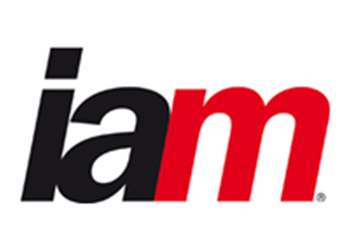If you back a Kickstarter crowdfunding project by a company that ends up selling to Facebook for $2 billion, do you deserve to get a return on your campaign donation? This is the q
uestion raised by some of the backers of the September 2012 crowdfunding campaign of the Oculus Rift virtual reality headset, which successfully raised $2.4
million on Kickstarter, a rewards-based crowdfunding platform.
Rewards platforms are not considered equity investment  portals. Instead, they offer ways for companies and projects to find supporters who make a monetary contribution (donation) in return for a set of rewards – ranging from merchandise such as a t-shirt all the way to pre-ordering the actual product itself. One Forbes analyst calculated that a campaign backer who put $300 into Oculus as an equity investment could have made a return of $20,000 when Facebook bought Oculus 18 months later for $2 billion. However compelling, this argument is largely flawed, as a rewards-based donation is technically not an equity investment. Equity crowdfunding is still pending in the United States, awaiting the Securities and Exchange Commission (SEC) regulations required for the implementation of the Jumpstart Our Business Startups (JOBS) Act, the 2012 legislation destined to open up equity crowdfunding to non-accredited investors in the United States for the first time in history. Several key valuation issues are worth discussing in the context of crowdfunding which are very specific to the crowdfunding platform and the regulations surrounding it.
portals. Instead, they offer ways for companies and projects to find supporters who make a monetary contribution (donation) in return for a set of rewards – ranging from merchandise such as a t-shirt all the way to pre-ordering the actual product itself. One Forbes analyst calculated that a campaign backer who put $300 into Oculus as an equity investment could have made a return of $20,000 when Facebook bought Oculus 18 months later for $2 billion. However compelling, this argument is largely flawed, as a rewards-based donation is technically not an equity investment. Equity crowdfunding is still pending in the United States, awaiting the Securities and Exchange Commission (SEC) regulations required for the implementation of the Jumpstart Our Business Startups (JOBS) Act, the 2012 legislation destined to open up equity crowdfunding to non-accredited investors in the United States for the first time in history. Several key valuation issues are worth discussing in the context of crowdfunding which are very specific to the crowdfunding platform and the regulations surrounding it.
Signed into law by President Obama on April 5 2012, the JOBS Act is designed to stimulate job growth by making it easier and less costly for smaller companies to raise capital in the United States through a relaxation of the regulatory restrictions applicable to private offerings, initial public offerings and certain newly public companies. Title III of the JOBS Act amends Section 4 of the Securities Act to exempt issuers from the requirements of Section 5 of that act when they offer and sell up to $1 million in securities, provided that individual investments do not exceed certain thresholds and the issuer satisfies other conditions. The JOBS Act directs the SEC to adopt rules to implement Title III. The long-awaited US equity crowdfunding Title III SEC regulations are still pending, and are anticipated to be finalised by the end of 2014. Title III includes a set of information disclosure requirements for fundraising companies such as audited financial statements, shareholder listing, share valuation and a business plan. Such disclosures are perceived as imposing a great financial and operational burden on early-stage companies trying to raise equity through crowdfunding; but at the same time, these disclosures also provide a great deal of transparency into highly sensitive information – most notably, start-up valuations.
Based on the 2013 Crowdfunding Industry Report from research firm Massolution, the amount raised across all crowdfunding platforms globally between 2010 and 2012 has tripled from $900 million to $2.7 billion. Future fundraising is projected toincrease in 2013 to $5.1 billion globally. Crowdfunding platforms operate at the crossover between technology and financial services, and are part of a fast-rising sector known as financial technology (‘FinTech’). This sector includes a wide array of players, from companies selling technology services, to financial institutions to companies that have disrupted and innovated the finance and payment cycles to create new business models enabled by technology (mobile payment companies such as Square or online payment platforms such as PayPal).
I was recently part of a panel at an event hosted by the Licensing Executives Society – Silicon Valley chapter, with two of the leading US FinTech companies – syndicated equity funding platform MicroVentures, and Prosper, a peer-to-peer lending platform – as well as Traklight, a company specialising in IP protection in crowdfunding situations. The panel focused on the state of US crowdfunding activity in general, and the JOBS Act in particular, while highlighting the impact that public disclosures required by the JOBS Act could have on IP protection, corporate governance and company valuations. Below are some of the key takeaways:
- The equity valuation disclosures mandated by the JOBS Act will create a new set of early-stage valuation comparables, data that has largely been missing from the public domain until now. It is probably reasonable to assume that many founders of early-stage companies may not be excited about having to disclose business plans and valuations on a public platform at such an early stage in their corporate lifecycle. One area that might be affected directly is equity compensation plans such as employee stock option plans, where stock options are issued to employees at low exercise prices which are set to equal the price of common stock at the time the options are issued. Equity prices are largely expected to go up as higher scrutiny is applied to the valuation disclosures.
- On the rewards side, while not setting up equity price comparables, the campaign can serve an important role in market validation of the execution and scalability of the business model. Since many valuations of pre-revenue start-ups rely on key performance indicators (KPIs) and not on financial fundamentals, KPI validation is critical in building investor confidence and can indirectly affect valuations and funding. Customer demand, team execution, order fulfilment and other critical information can be gleaned from a rewards-based campaign and incorporated in the next iteration of the product, or serve as validation of key business model assumptions.
Both types of crowdfunding platform raise interesting valuation challenges. The Oculus fundraising trajectory, leading to its eventual sale to Facebook, could have been very different had it been financed through equity crowdfunding under the JOBS Act. Since both types of funding are so different, it is difficult to predict the hypothetical returns to backers had they been treated as shareholders. Much remains to be seen once the SEC finalises the JOBS Act regulations, and both rewards and equity-based funding platforms are available side by side in the United States.
Article also published: iam-media.com


